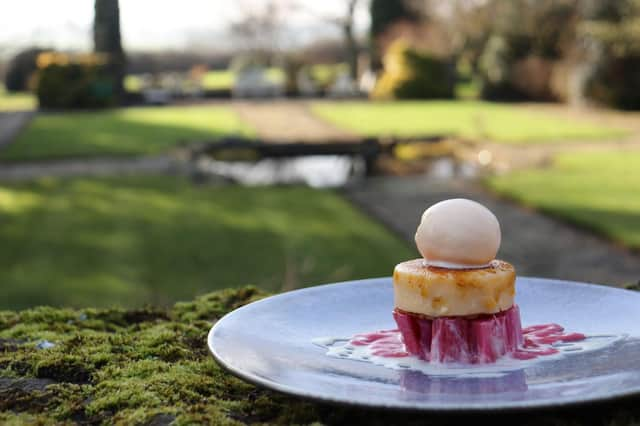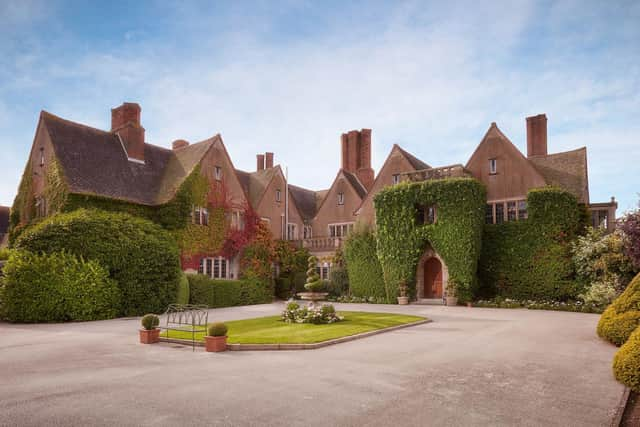Rare crop grown in the dark and harvested by candlelight has been turned into new dessert at a Leamington hotel


A rare crop grown in the dark and harvested by candlelight has been turned into a new dessert in Warwickshire
Chef director at Mallory Court Hotel and Spa, Simon Haigh, has created a twist on a crème brûlée with a unique vegetable that takes him back to his roots.
Advertisement
Hide AdAdvertisement
Hide AdThe dessert is centred on a forced English rhubarb – a winter crop which is grown by just 12 producers in dark forcing sheds in Yorkshire.


The rhubarb was granted Protected Designation of Origin (PDO) status by the European Commission in 2010, and is grown in a nine-square-mile radius in West Yorkshire known as the ‘Rhubarb Triangle’ between Bradford, Leeds and Wakefield, close to where Simon grew up.
Now the fuchsia-pink coloured rhubarb stars on the menu at Mallory Court's restaurant, as a limited-edition forced English rhubarb brûlée served with ginger and Advocaat ice-cream.
Michelin-starred chef Simon, who has recently returned to the hotel, said: “It’s a crop with a really fascinating story as it was traditionally engineered in the Victorian times to fill a seasonal gap.
Advertisement
Hide AdAdvertisement
Hide Ad“Growing it by candlelight can help take the bitterness away and it also stays a bright pink.
“Now there’s only a handful of people who produce it in a tiny area of Yorkshire, so it’s a real treat to have it on the menu at Mallory while it’s in season.
“For me it brings back memories of my own childhood as it’s something we used to pick as kids in Yorkshire.
"My mum would give me a paper cone of granulated sugar we would pick the rhubarb and dip it straight into the sugar, so I guess you could say she was the inspiration behind this dessert.”
Advertisement
Hide AdAdvertisement
Hide AdThe English forced rhubarb is prized because of its unusual season between January and March, which has grown in popularity over the last decade.
Its unfamiliar farming method sees stems initially grown in open fields for up to two years so frost exposure toughens the roots, before being deprived of sunlight in dark forcing sheds, where the plant's carbohydrate is turned into sweet glucose.
With the natural photosynthesis process blunted, the rhubarb crowns are forced to shoot upwards stems in search of light – a process which happens so quickly you can even hear them grow.